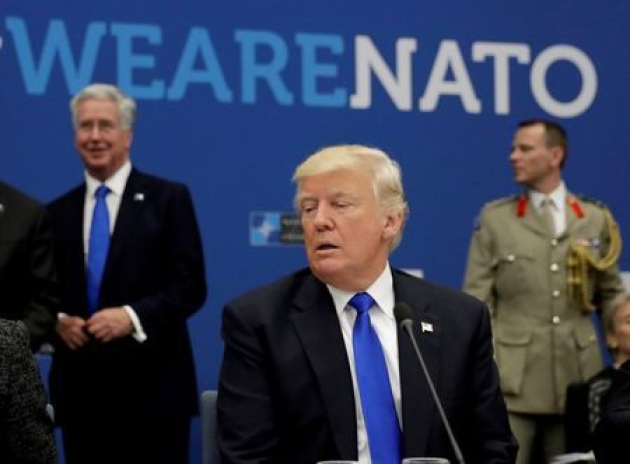BRUSSELS/WASHINGTON - European leaders say they no longer have any illusions about Donald Trump as they welcome the U.S. president at a NATO summit this week, but they fear his “America first” agenda may force a moment of reckoning that works to no-one’s benefit.
After searching for stability and familiarity in U.S. foreign policy in Trump’s first year in office, America’s friends in Europe have come to accept the president as an unpredictable political insurgent. But that does not make it any easier to see their own priorities undermined.
Germany’s Foreign Minister Heiko Maas warned in a recent speech that “old pillars of reliability are crumbling”, in a veiled reference to the U.S. withdrawal from the 2015 Iran nuclear deal to tariffs on EU metals exports and the threat of more to come on cars.
On NATO’s old foe Russia, the administration has sent mixed messages by intensifying a U.S. military build-up in Europe while railing against fellow NATO members on defense spending and failing to coordinate on new sanctions on Moscow in 2017.
The U.S. president - the de facto leader of the nearly 70-year-old North Atlantic Treaty Organisation - has indicated what his message will be at the two-day meeting from Wednesday: other governments must dramatically step up military spending and lower import tariffs.
“I’m going to tell NATO: You’ve got to start paying your bills. The United States is not going to take care of everything,” Trump told a rally last week, adding: “They kill us on trade.”
U.S. officials and politicians regularly say Washington spends 70 percent of its defense budget on NATO, a claim that is flatly denied in Europe. One senior EU official said the number is more like 15 percent. Like many of the officials and diplomats quoted for this story, he asked not to be named because he was not authorized to speak on the record.
EU officials also contend EU tariffs on most U.S. imports are already low. (Reuters)
Home » World » Transatlantic Ties Hang in the Balance as Trump Comes to Europe
Transatlantic Ties Hang in the Balance as Trump Comes to Europe

